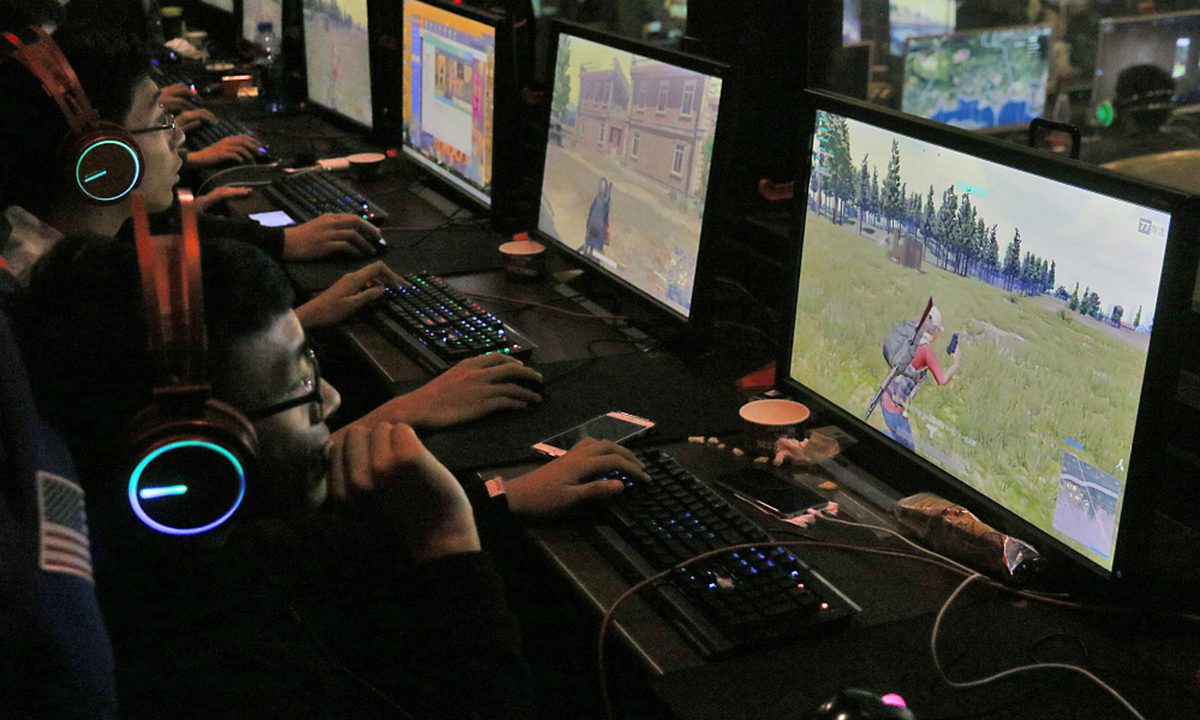China’s e-sports players face occupational diseases and limited access to healthcare: expert
专家:中国的电竞选手正面临职业病的危害和医疗保障有限的问题

China’s e-sports industry has continued to boom with many young people fascinated by playing online video games, such as DOTA and League of Legends. Some have even become professional players but an expert pointed out that a growing number of e-sports players may face chronic diseases due to their occupation and limited access to healthcare.
“E-sports players can have tenosynovitis, a swelling of the wrist and pain caused by high-intensity repetitive movements of fingers and hands, strains on neck, shoulder, waist and legs, and even lung collapse due to poor posture and sedentary working style,” Shi Zeyuan, CEO of the Eternal Naturally Health Technology, a company based in Shanghai, told the Global Times on Tuesday.
“More serious are the lumbar and cervical problems,” said Shi, adding that “many players also suffer cardiovascular and other medical problems caused by long-term irregular work schedule and diet.”
The risk of getting occupational diseases for e-sports players is several times higher than for white-collar workers, with 75 percent of them suffering work-related diseases, Beijing Youth Daily reported on Tuesday.
Media reported that right before the 2021 Spring Festival, FunPlus Phoenix jungler Tian, former League of Legends world champion, announced that he would be taking a break from competitive play for health reasons. Prior to Tian, Uzi, another Chinese player, widely regarded as one of the greatest Attack Damage (AD) carriers of all time, decided to retire from professional gaming in 2020 for the same reasons.
“Chronic diseases are always the result from the accumulation of multiple conditions, and the symptoms are not severe at the beginning and go even unnoticed in a short period of time because many players can recover from those symptoms overnight.” Shi added that the age of e-sports professionals ranges from 16 to 22 and they “often overlook the alarming signs from their bodies.”
“Therefore, a team of physicians is necessary to help e-sports players with rehabilitation, treatment and psychological counseling and prolong their careers as much as possible,” he noted.
China has witnessed a rapid growth in its e-sports industry in recent years. According to a 2020 report by Beijing-based iResearch Consulting Group, China’s e-sports market volume is expected to hit over 140 billion yuan (more than $21 billion), an increase of approximately 20 percent year on year. In the first half of 2020, China’s e-sports game sales reached 71.9 billion yuan, an increase of 55 percent compared to that of 2019.
However, Shi pointed out that the majority of China e-sports clubs are under deficit. “Additionally, club leadership and e-sports players also lack the awareness of health management, resulting in a very low penetration rate of physicians in China’s e-sports industry.”
He said some clubs choose to work with health management companies to solve the current shortage of funds and suggested that China’s e-sports industry should also learn from foreign experiences in club management.
“For example, the US’ professional e-sports organization, Team Liquid, in addition to its financial advantages, has professional management and operation teams, and attaches great importance to its players’ health training,” Shi said.








